This month, we update you on developments in Colombia, Brazil, Venezuela, Paraguay, Peru, Bolivia, Argentina, and Chile.
Amnesty International has delivered a petition signed by over 1 million people to mark the third anniversary of the murder of Marielle Franco in Brazil and has urged the Venezuela government to address the widespread human rights violations documented by an Independent International Fact-Finding Mission. We have two new cases on our Individuals at Risk portfolio for local groups to act: Joel Chipiaje (Colombia) and Gustavo Gatica (Chile). In Colombia, 177 human rights defenders were killed in 2020. Former Bolivian president Jeanine Añez has been detained and concerns over the impartiality of her arrest were raised. A new bill in Peru could jeopardise the rights of people with disabilities, including the right to consent to mental health treatment. A scandal over the roll-out of the Covid-19 vaccine Sputnik in Argentina forced the Health Minister to step down. Chile postpones its elections to re-write their constitution due to a surge in Covid-19 cases.
REGIONAL- COVID-19 Vaccines in the Americas.
On 25 March, Amnesty launched a new report Vaccines in the Americas. Ten Human Rights Musts to Ensure Health for All. The report analyses the vaccination plans against COVID-19 and the implementation of these plans. Amnesty is calling on States to comply with international human rights standards, to allow vaccinations to be available to the entire population, to prioritise high risk groups, and to ensure complete transparency in the design and implementation of their vaccination plans and their dealings with pharmaceutical companies. We have written to the Foreign, Commonwealth and Development Office and to the UK Embassies of South American countries urging support for the recommendations.
COLOMBIA
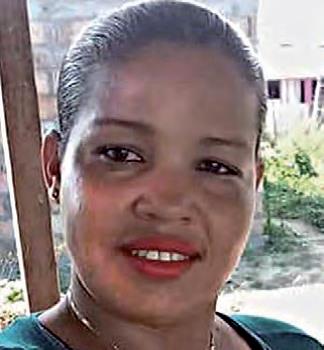
Frontline Defenders reports that 177 human rights defenders were killed in Colombia in 2020. This represents over half of all human rights defenders killed in the world. ‘2020 witnessed another rise in the level of violence directed against HRDs in Colombia, particularly those participating in the implementation of the peace process and engaging in voluntary drug crop substitution initiatives or those opposing the extraction of natural resources… At the same time, the number of defenders receiving protection from the National Protection Unit was reduced.’
A third wave of Covid-19 fuelled by the Manaus variant is underway in Colombia and threatens the country’s healthcare system. The Government, which has been criticised for its slow roll out of vaccines, is committed to vaccinating 30 million people by the end of the year.
To Amnesty International´s knowledge, Colombia is the only country in the region that opened its national vaccination plan to a consultation process. As a result the final plan includes a specific mention on indigenous peoples in the priority groups for vaccine rollout. Vaccination commenced in Colombia in late February 2021.
The Georgetown Institute for Women, Peace and Security (GIWPS) joins calls for the Government of Colombia to return to the Inter-American Court of Human Rights hearing to determine the government’s responsibility in the rape and torture case of Jineth Bedoya Lima. On 25 May 2000, she was kidnapped while waiting for authorization to enter Bogota’s Modelo prison to interview inmates on paramilitaries and armed conflict in Colombia’s prisons. During the kidnapping, she was tortured and raped and told by her attackers that this was “punishment” for her journalism. Bedoya has sought justice in Colombia, investigating her own case when prosecutors failed to do so and facing additional threats seeking to silence her.
PBI Colombia warns that 170,500 people in the Pacific port of Buenaventura are at risk of forced displacement or death as two former paramilitary groups battle in the city. In January, more than 38 confrontations led to the forced displacement of over 2,000 residents and the killing of 22. In February the Bishop of Buenaventura indicated that in one district former paramilitaries had returned to use rudimentary cabins to torture and dismember people.
BRAZIL
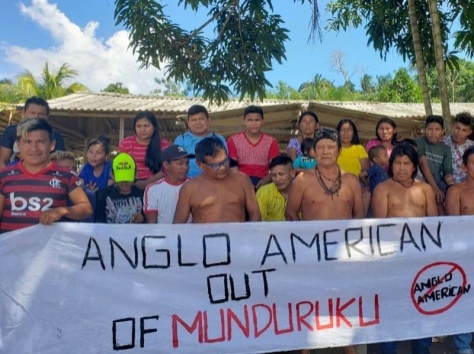
According to Amazon Watch, the Munduruku people of the Amazon’s upper Tapajós valley are facing escalating threats by armed illegal “wildcat” miners. The Wakoborun Association office in Jacareacanga, Pará state, was attacked, burned, and defaced. The violence occurred shortly after Indigenous women who are opposed to mining received death threats. The illegal miners are well-funded by organised crime.
Amnesty International delivered a petition signed by over 1 million people to mark the 3rd anniversary of the killing of Marielle Franco and her driver. ‘The crime remains unsolved and has become an example of the impunity regarding violence against human rights defenders in Brazil.’
The Economist reports (27 March issue) on the record death toll and collapse of Brazil’s health system, mostly caused by the P.1 Manaus variant which infects 25 to 61% of people who have had Covid-19. The vaccine programme started late and has now reached 8% of the population.
Amnesty International found the issue of COVID-19 vaccines ‘has been a source of political dispute between the president, who has made repeated declarations opposing COVID-19 vaccines, causing confusion in the national vaccination strategy, and governors in different parts of the country that have sought to provide vaccines to their local populations. State prosecutors have already started to clamp down on cases of lawyers, powerful businessmen, fashion bloggers, politicians and others obtaining vaccines through illicit means against the overall public interest.’
BOLIVIA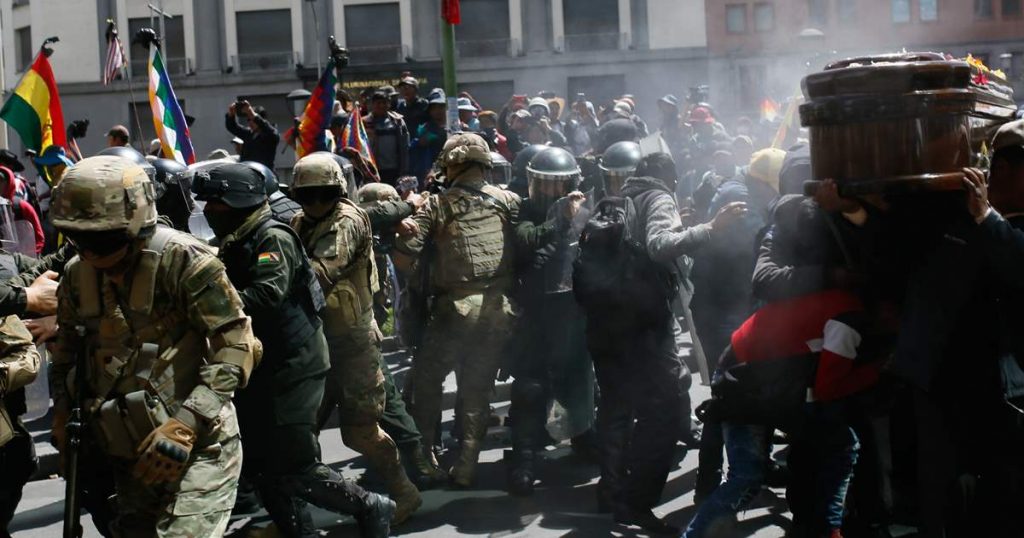
On 14 March, an order was issued for the preventive detention of former interim President Jeanine Añez and several former officials of her government. Noting that the order was related to their alleged criminal responsibility for the offences of sedition, conspiracy and terrorism, and not for their responsibility for the human rights violations that occurred while they were in government, Amnesty said that the latter must be investigated independently, impartially and with respect for due process guarantees.
Both Amnesty and Human Rights Watch (HRW) have also criticised the presidential decree approved by Congress in February which grants pardons or amnesties to supporters of the ruling Movement for Socialism (MAS). Amnesty described it as a continuation of the pattern of bias in the system of justice that helps perpetuate impunity for human rights violations, while HRW said that it opened the door to impunity for serious crimes.
PARAGUAY
President Abdo Benitez
President Abdo Benitez has asked all cabinet ministers to resign following clashes between demonstrators and police at protests against the government’s handling of the coronavirus crisis. Clashes broke out on 5 March between protesters and police in the centre of the capital, Asuncion. The Inter-American Commission on Human Rights (IACHR) has expressed concerns over reports that police used excessive force during the protests and called on the authorities to investigate complaints of human rights violations.
PERU
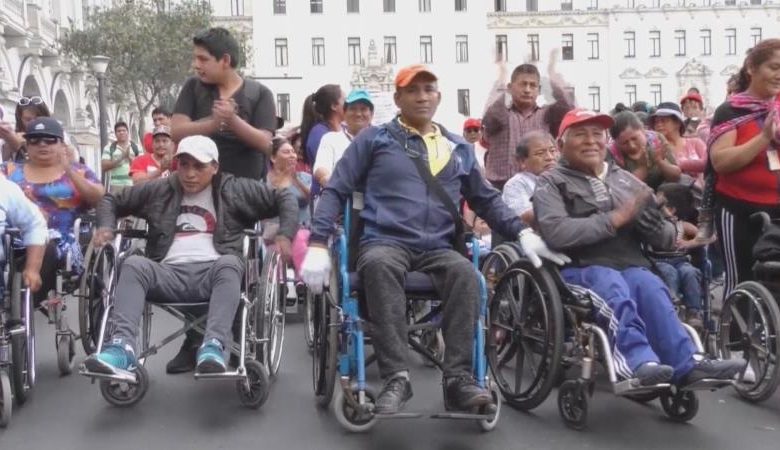
The Congressional Commission on Social Inclusion and People with Disabilities approved a draft bill on 8 February 8, without engaging in a broad consultation process with groups representing people with disabilities. According to HRW, the bill, if passed by Congress, would jeopardise many rights protected in current legislation, including the right to consent to mental health treatment.
VENEZUELA
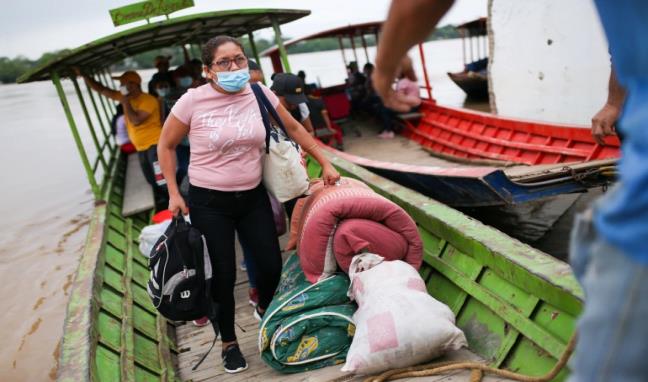
On 11 March, the 46th session of the Human Rights Council, the High Commissioner for Human Rights presented her oral update on the situation in Venezuela. The statement included the issues of judicial executions, access to basic services, average wage, Venezuelan migrants, the situation in trials and detention centres, humanitarian assistance and criminalisation of the media, opponents and human rights defenders. Read the full statement here.
Statement of Amnesty International during the 46th session of the Human Rights Council.
Amnesty International urged the government of Venezuela to meaningfully engage with the Office of the High Commissioner for Human Rights and the Independent International Fact-Finding Mission on the Bolivarian Republic of Venezuela, to address the widespread human rights violations documented. The UK’s International Human Rights Ambassador delivered this statement during the Interactive Dialogue with the International Independent Fact-Finding Mission on Venezuela.
Forced displacement of thousands of Venezuelans to Arauquita, Colombia. According to The Guardian, nearly 5,000 refugees holed up in the small Colombian town of Arauquita, having fled intense and continuing battles, because of the fighting between the FARC dissidents and the Bolivarian Guard. UNHCR, the UN refugee agency, is assisting with the effort to shelter and feed the desperate arrivals in more appropriate conditions. The IACHR expressed concern about the displacement and urged the Colombian and Venezuelan authorities to adopt coordinated measures to assist and protect the displaced civilian population at the border, as well as to guarantee their voluntary and safe return.
ARGENTINA
President Alberto Fernandez asked Health Minister Gines Garcia Gonzalez to step down, after claims that a V.I.P vaccination centre was offering the Sputnik vaccine to friends, relatives, politicians, and activists within the Government party. 70 people are said to have received the vaccine, skipping the priority groups that were established for the roll-out. Argentina remains one of the countries with more vaccines received per habitant with 7% of its population vaccinated with the first dose.
CHILE
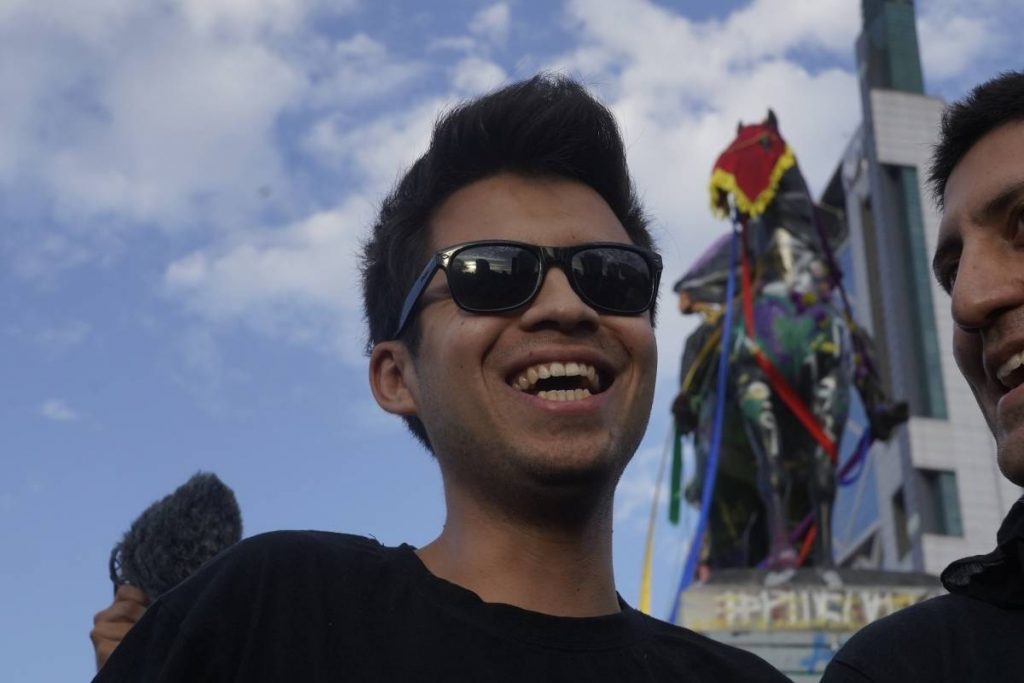
The case of Gustavo Gatica is now on our Individuals At Risk portfolio. Gustavo Gatica, a 21-year-old student of psychology and an avid fan of music and photography joined the protests. Police fired into the crowds aiming at the upper body of protesters, and Gustavo was shot in both eyes. He was blinded permanently.
Chile has imposed a new lockdown, despite their agile vaccination roll-out. With the new restrictions, President Sebastián Piñera proposed delaying the elections that would choose a commission to re-draft the constitution, after the referendum held last year and the protests that took place in 2019.
OUR TEAM AND YOU
We give a warm welcome to Javiera Martinez, who joined our team last month and has taken over responsibility for Venezuela. Despite COVID-19, members of our team remain available to give online presentations to Local Groups on our countries. Please get in touch if you are interested.
All the best,
South America Team – Richard Crosfield (Colombia and Brazil), Carla Torres (Chile and Argentina), Javier Martinez (Venezuela) and Graham Minter (rest of South America).